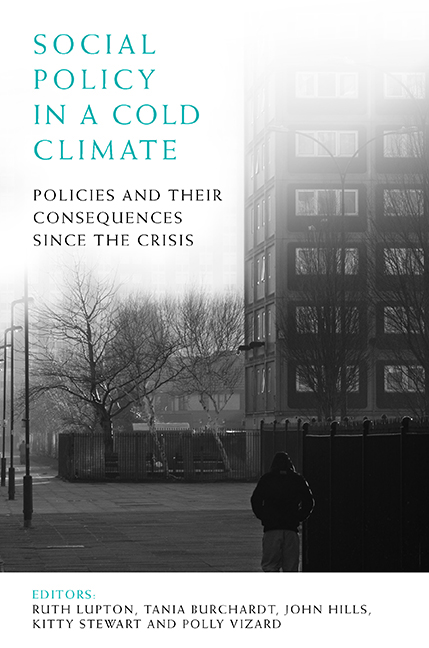Five - Further and higher education and skills
Published online by Cambridge University Press: 01 September 2022
Summary
The situation on the eve of the crisis
In December 2006, six months prior to Gordon Brown's new ministerial team taking office, the Leitch Review of Skills (2006) set out an analysis of the challenges the government faced. Using qualifications as a proxy for skills, Leitch argued that the UK's skills base had improved significantly. Between 1994 and 2005, the proportion of people with a qualification at Level 4 (sub-degree level) or above had risen from 21% to 29%, and the proportion with no qualifications had fallen from 22% to 13%, while 42% of those aged 18-30 were participating in higher education (HE), more than ever before. The number of apprentices had more than trebled since Labour took office in 1997. However, other countries had also been improving their skills, often from a higher base, so the UK's skills base was mediocre by comparison with international competitors. The proportion of people with no or low qualifications was more than double that in Sweden, Japan and Canada. Youth unemployment was already rising, even during the boom years of the 2000s, and the proportion of 16- to 18-year-olds not in education, employment or training (NEET) hovered steadily around the 9 to 10% mark, despite rising school attainment. Post-16 participation in education and training was below the OECD average. Fewer than 40% of people were qualified to intermediate level, compared with more than 50% in countries such as Germany and New Zealand. The situation for high skills was better, around the international average, but the UK was investing substantially less in higher education than leading competitors, and being overtaken by countries that were improving their participation rates faster (OECD, 2010).
Thus, although the UK was in a strong economic position, with a comparatively high employment rate and sustained economic growth, its competitiveness was increasingly at risk, with productivity lagging well behind countries such as France, Germany and the US. Leitch argued that improving skills was central to achieving a fairer and less unequal society: unequal access to skills had contributed to high rates of child poverty and income inequality, and there were clear links between skills and wider outcomes such as health, crime and social cohesion.
- Type
- Chapter
- Information
- Social Policy in a Cold ClimatePolicies and their Consequences since the Crisis, pp. 81 - 102Publisher: Bristol University PressPrint publication year: 2016

